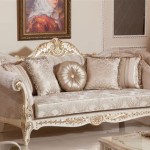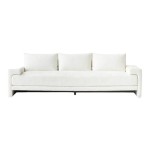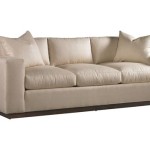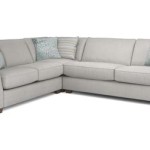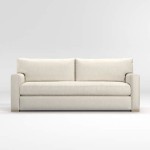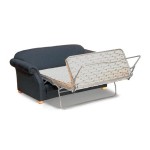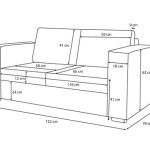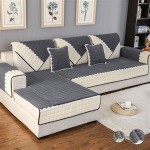Modular Sofa Furniture Systems: Flexibility and Adaptability in Modern Living
Modular sofa furniture systems, also known as sectional sofas, have become increasingly popular in contemporary homes and commercial spaces. These systems offer a unique blend of flexibility, adaptability, and aesthetic versatility, allowing users to create customized seating arrangements that perfectly suit their individual needs and spatial constraints. Unlike traditional sofas, modular systems comprise individual components, such as armless chairs, corner pieces, ottomans, and chaises, that can be arranged and rearranged in a multitude of configurations. This inherent adaptability makes them ideal for dynamic living environments and evolving lifestyles.
The rise in popularity of modular sofa furniture systems is driven by a confluence of factors, including the increasing prevalence of open-plan living, the desire for customizable home décor solutions, and the growing recognition of the long-term value proposition offered by these versatile pieces. Consumers are no longer content with static furniture arrangements; they seek furniture that can adapt to changing needs, accommodate various social settings, and reflect their personal style.
Modular sofas are not only adaptable to changing room layouts but also to changing needs. A small apartment dweller might initially configure a modular sofa as a compact two-seater. However, as their needs evolve, perhaps by moving to a larger space or frequently hosting guests, the system can be expanded by adding additional modules. This avoids the expense and hassle of purchasing an entirely new sofa.
Key Advantages of Modular Sofa Furniture Systems
The advantages of modular sofa furniture systems are multifaceted, encompassing functional, aesthetic, and economic benefits. The primary advantage is their unparalleled flexibility, which allows for the creation of seating arrangements that are perfectly tailored to specific spaces and needs. Here are some important advantages of the modular sofa furniture systems:
Customization and Adaptability: This is perhaps the most salient advantage of modular sofas. The ability to rearrange the components allows users to create seating configurations that are optimally suited to their space. For instance, a long, linear sofa can be transformed into an L-shaped sectional for corner placement, or individual modules can be separated to create separate seating areas for larger gatherings. This adaptability is particularly valuable in spaces with unconventional layouts or in homes where the function of the living room frequently changes.
Space Optimization: Modular sofas are adept at maximizing space efficiency. In smaller apartments or condos, a carefully chosen modular system can provide ample seating without overwhelming the room. The individual components can be distributed throughout the space to create multiple seating zones, making the most of limited square footage. In larger homes, modular sofas can be configured to define distinct areas within an open-plan layout, creating a sense of separation and functionality.
Aesthetic Versatility: Modular sofas come in a wide array of styles, materials, and colors, allowing them to seamlessly integrate into various design aesthetics. Whether the preference is for a minimalist modern look, a cozy traditional style, or an eclectic mix of textures and patterns, there is a modular sofa system to suit every taste. The ability to mix and match different modules, such as fabric and leather, further enhances the aesthetic possibilities.
Factors to Consider When Selecting a Modular Sofa System
Choosing the right modular sofa system requires careful consideration of several factors, including the size and layout of the space, the intended use of the sofa, the desired aesthetic, and the budget. Here are some crucial factors to consider when making your selection:
Module Size and Configuration: The size and configuration of the individual modules are paramount. Before purchasing, it is essential to accurately measure the available space and plan the desired seating arrangement. Consider the number of people the sofa will typically accommodate and the various ways in which it will be used. Choose modules that are appropriately sized and shaped to create a comfortable and functional seating area. Some systems offer a greater variety of module sizes and shapes than others, which can provide more flexibility in design.
Material and Construction Quality: The quality of the materials and construction directly impacts the durability and longevity of the sofa. Look for frames constructed from solid hardwood, which provides superior stability and support. The springs and cushioning should be of high quality to ensure long-lasting comfort and resilience. The upholstery fabric should be durable, stain-resistant, and easy to clean. Leather upholstery offers a luxurious look and feel but requires more maintenance than fabric. The stitching and seams should be neat and strong, indicating attention to detail and quality craftsmanship.
Comfort and Ergonomics: While aesthetics are important, comfort should not be sacrificed. Choose a modular sofa system with comfortable cushions and ample support. Consider the seat depth, back height, and armrest height to ensure that the sofa provides proper ergonomic support. Test the sofa out in person, if possible, to assess its comfort level. Read online reviews to get an idea of other users' experiences with the sofa's comfort.
Connectivity and Stability: The method by which the modules connect is crucial for stability and ease of use. Some systems use simple interlocking mechanisms, while others utilize more sophisticated hardware. Ensure that the connection system is secure and prevents the modules from shifting or separating during use. Look for systems with adjustable feet to ensure that the sofa sits level on uneven floors.
The Modular Sofa Furniture System in Commercial Spaces
The application of modular sofa furniture systems extends beyond residential settings and proves to be a beneficial addition to various commercial environments. Their versatility and adaptability make them an ideal choice for businesses looking to create flexible and inviting spaces for employees and clients. Here are some of the benefits and considerations that apply to commercial applications:
Office Environments: In modern office spaces, modular sofas can be used to create collaborative work areas, informal meeting spaces, and comfortable break rooms. The ability to easily reconfigure the seating arrangement allows businesses to adapt to changing team sizes and project needs. For example, a large sectional sofa can be used to create a casual meeting space for team collaborations, while smaller, individual modules can be used to create quiet zones for focused work. In reception areas, modular sofas can provide comfortable seating for visitors, creating a welcoming and professional atmosphere.
Hospitality Industry: Hotels, restaurants, and cafes can benefit from the flexibility of modular sofas in creating adaptable seating arrangements. In hotel lobbies, modular sofas can be used to create welcoming and comfortable waiting areas. In restaurants and cafes, they can be arranged to accommodate various group sizes and dining styles. Event spaces can utilize modular sofas to create lounge areas for guests, which can be easily reconfigured for different events. The durability and ease of cleaning of commercial-grade modular sofas make them a practical choice for high-traffic areas.
Retail Spaces: Retail stores can use modular sofas to create comfortable seating areas for shoppers, encouraging them to spend more time in the store. In clothing stores, modular sofas can be placed in fitting room areas to provide comfortable seating for companions. In furniture stores, modular sofas can be used to showcase different styles and configurations, allowing customers to experience the versatility of these systems. The ability to easily rearrange the seating arrangement allows retailers to create dynamic and engaging displays.
Durability and Maintenance: For commercial applications, it is essential to choose modular sofas that are specifically designed for high-traffic environments. These sofas should be constructed from durable materials that can withstand heavy use and frequent cleaning. Look for fabrics that are stain-resistant, water-repellent, and easy to clean. Consider selecting fabrics with antimicrobial properties to help prevent the spread of germs. Regular cleaning and maintenance are essential to keep commercial modular sofas looking their best and prolonging their lifespan.
In conclusion, modular sofa furniture systems offer a compelling combination of flexibility, adaptability, and aesthetic appeal, making them a valuable addition to both residential and commercial spaces. By carefully considering the factors outlined above, individuals and businesses can select a modular sofa system that perfectly meets their needs and enhances their living or working environment. The ability to customize and reconfigure these systems ensures that they will remain a relevant and functional piece of furniture for years to come.

Soft Cube Modern Modular Sofa Set Expand Furniture Folding Tables Smarter Wall Beds Space Savers

Le Mura Indoor Upholstered Modular System From Tacchini Commercial Quality Design Furnitur Ergonomia Furniture

41 Modular Sofas To Suit Every Need

Future Proof Your Home With Modular Sofas Expand Furniture

Gene Hook Curve Modular Sofa System Workspace Furniture Dubai

Sf01 Calm Modular Sofa Pouf Module 95 Cm The Perabot

Total Modular Sofas By Part Whole

Gene Arch Round Modular Sofa System Workspace Furniture Dubai
Your Guide To A Modular Sofa Dfs

15 Of The Best Modular Sofas These Four Walls

